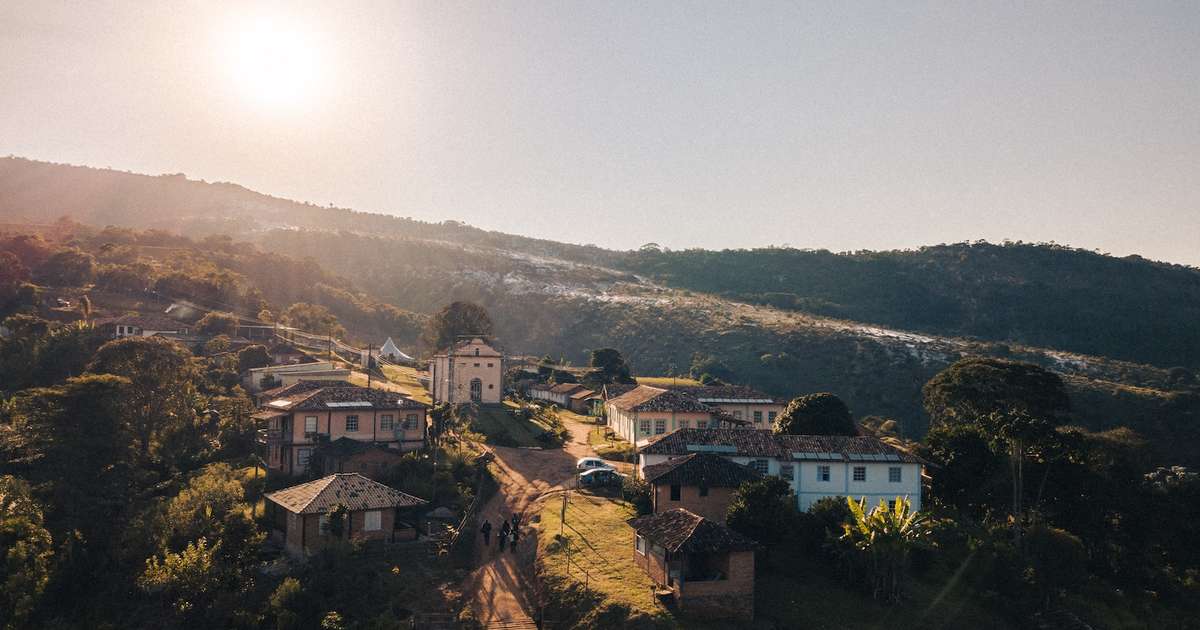
What if hospitality didn’t just sustain, but restored ecosystems, communities and the human spirit?
In the heart of Brazil’s Atlantic Forest, that question has already been answered. Ibiti Projeto stands as living proof that regenerative hospitality is not a far-off dream but a reality. Over 40 years, it has transformed once-degraded land into a thriving biodiversity refuge, while creating opportunities for local people to become entrepreneurs and stewards of their own future.
My recent immersion there was a reminder that regeneration is not an abstract ideal – it’s a tangible force that can transform landscapes, economies and mindsets all at once.
Ibiti: From Concept to Living Model and Lab
Ibiti is an experimental socio-environmental project centered on living beings and their shared home – the planet. Founded in 1982 the project has regenerated more than 6.000 hectares of land, and its rewilding efforts have brought back endangered species like the northern muriqui, tapirs and jacutingas, with Harpy Eagles soon to follow. Organic food production supplies both the hospitality operations and surrounding communities.
But Ibiti’s regeneration is not only ecological. More than 300 people work in and around the project, many running their own businesses, hotels, bike rentals, restaurants, in tune with Ibiti’s values. This entrepreneurship model strengthens the regional economy and ensures that conservation and community wellbeing grow hand in hand. A great example is the Mogol village, once almost emptied by rural migration, has been reborn as a vibrant co-living village for local returning residents and guests alike. A unique example of regenerating a village.
Its mission is simple yet profound: to create the conditions for happiness to flourish, where people and nature live in harmony. In doing so, it shows how regenerative travel can reverse environmental degradation while renewing the human spirit.
Hospitality as a Catalyst for Regeneration
Regenerative hospitality goes beyond sustainability. While sustainability seeks to reduce harm, regeneration actively improves the health of ecosystems, communities and economies, a shift described by Hes & Du Plessis (1) as moving “from doing less harm to creating net positive impact.”
Ibiti began with land restoration. Over more than four decades, this rewilding has restored native forests, improved soil health and brought back keystone species. But it didn’t stop there -hospitality became a deliberate tool for social regeneration.
Guests are not passive consumers; they enter a living system. In the village, visitors and locals share space, meals and daily life. Hierarchies dissolve. Conversations flourish. Respect for people, for nature, for possibility – becomes the currency.
This approach aligns with findings from regenerative tourism research (2), which show that integrating ecological restoration, community empowerment and cultural renewal produces measurable gains in wellbeing for both hosts and visitors.
Why Ibiti Matters as a Model
Globally, regenerative hospitality remains underrepresented compared to sustainability initiatives, despite growing evidence of its economic, social and ecological value (3). Many operators fear it’s too complex, costly, or context-specific to replicate. Ibiti challenges that belief.
Its integrated model demonstrates three key principles:
- Put life at the centre. Not just human comfort or nature conservation, but the entire web of relationships that make up a place.
- Empower communities. Move from employees to entrepreneurs, creating ownership and resilience.
- Let nature lead. Design systems inspired by ecological processes and adaptive to change.
Because these principles are not place-bound, they can be adapted to many destinations – rural or urban, coastal or inland – provided there is a commitment to long-term stewardship and genuine collaboration.
A Personal Journey of Inspiration
I first encountered Ibiti in 2019, through an invitation from FOLHA and the World Economic Forum’s network of social entrepreneurs. Even then, it stood out as a pioneering example of regenerative tourism.
Returning now, I found a place that has evolved with even greater depth and courage. I walked through restored forests, met local entrepreneurs directing their own futures, and witnessed ideas take root in unexpected ways.
I fell in love back then – and this time, that love deepened. Because Ibiti proves something powerful: regenerative hospitality is not just possible, it is replicable, adaptable to other destinations and scalable in impact.
What If…?
What if more hospitality leaders embraced regenerative principles? What if destinations saw themselves not only as places to visit, but as living systems to heal and grow?
As Anderson (3) notes, this shift requires courage, cross-sector collaboration and a redefinition of success – one that measures prosperity in terms of ecosystem health, community resilience and human wellbeing.
Ibiti shows us it can be done. Ibiti has become a true living lab, demonstrating how hospitality can catalyze the regeneration of communities and natural ecosystems alike. With the world’s attention turning to Belém for COP30, where leaders will debate climate and nature solutions, Ibiti offers a place to show what it means to walk the talk. It will host a select group of high-level, committed stakeholders who will bring their expertise to accelerate and amplify this model, and in doing so, inspire our sector to replicate its learnings and practices.
An Invitation
Regeneration is a collective act. As an industry, we hold immense power to influence how people experience the world and, in turn, how they choose to care for it.
Ibiti is proof that when hospitality leads with life, magic happens.
It’s time to move beyond sustainability and create places that, like Ibiti, leave guests, communities and ecosystems better than we found them.
Nicola Gryczka Kirsch
Entrepreneur in Residence, EHL Group
Systems Entrepreneur & Innovation Orchestrator
Founder, The Regen Studio
Please visit:
Our Sponsor
